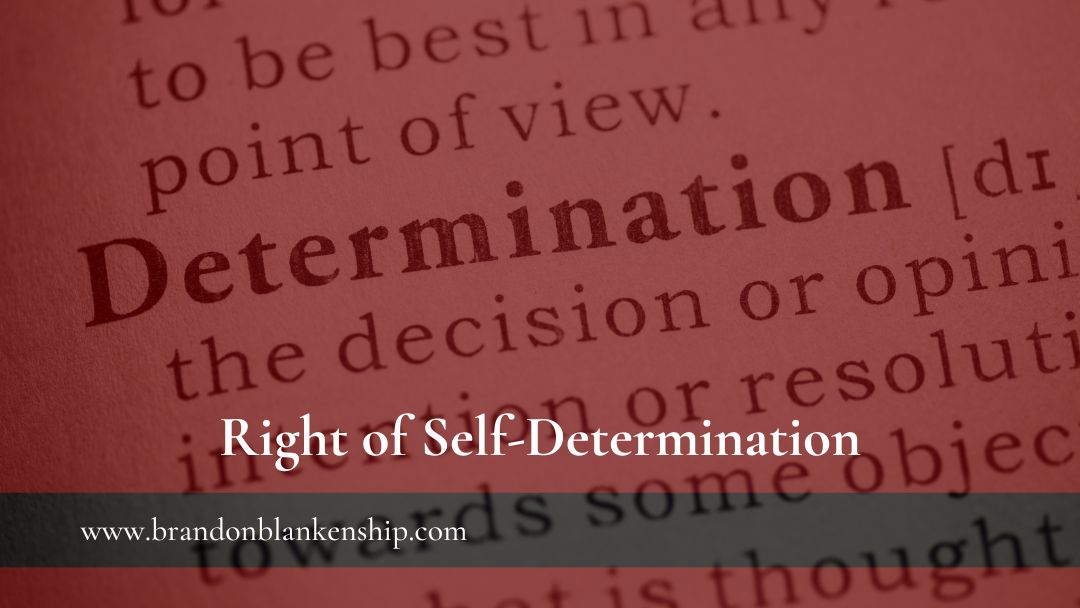Self-determination is a concept that resonates both in international law and at an individual level. Internationally, it’s recognized as a collective right, wherein communities are free to choose their own political status and develop economically, socially, and culturally without outside interference. This concept asserts that people have the freedom to shape their destiny in the global community. Similarly, on a personal level, the individual right to self-determination is rooted in the fundamental right to liberty. It’s about having the natural freedom to make our own choices and take responsibility for the outcomes.
The individual right of self-determination
is one’s natural freedom to make choices
and be responsible for the results.
This individual right becomes particularly significant when someone is incarcerated. In such situations, a person’s freedom to make certain choices is restricted due to their confinement. Recognizing this, the government is tasked with supporting the choices of inmates that allow them to return to their communities as valuable, productive members.
This support isn’t about imposing services on inmates. Rather, it’s about supporting their choice. It’s a voluntary decision for each individual to engage in supportive activities or not. This respect for personal choice is a core element of self-determination, emphasizing the respect for each person’s autonomy. In the context of incarceration, self-determination translates to supporting individuals’ right to make decisions regarding their own rehabilitation and future prospects. This approach underscores the inherent right to liberty and the opportunity for self-betterment and personal growth.
Governments can support this individual right to self-determination in several ways. Enhancing mental health services, providing educational and skill-building opportunities, and historical rehabilitation services are key steps. These measures empower inmates to make choices that benefit them, paving the way for a smooth reentry into society. By taking these steps, we not only help former inmates reintegrate but also contribute to a more vibrant and dynamic society, family life, and economic progress.
- Inviting Human Flourishing Through Building Design - March 22, 2024
- The Message in Your Misfortunes - January 28, 2024
- The Right of Self-Determination - January 15, 2024

